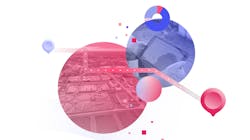Four Unexpected Things Wastewater Can Teach Us About Ourselves
Early in the pandemic, researchers demonstrated that wastewater-based epidemiology (WBE) – in other words, analyzing the contents of our sewage – could help track and understand the spread of COVID-19 faster than voluntary public testing or contact tracing. The effectiveness of wastewater intelligence in battling the pandemic highlighted the vast potential of this epidemiological methodology to go far beyond coronavirus tracking and address some of society’s other pressing problems.
RELATED CONTENT: Something in the Wastewater
Wastewater is a rich source of information for community health, providing dense biological and chemical information on a community with fewer biases than many other types of public health surveillance.
By early 2022 – the peak of the Omicron wave – wastewater analysis had become a vital tool for healthcare authorities tasked with tracking the pandemic and was subsequently used tracing recent outbreaks of polio and monkeypox. Similar “sewage sleuthing” has already been established to bolster cross-border preparedness for future pandemics.
Yet as coronavirus recedes from many countries’ top public concerns, the need for wastewater analysis remains imperative. The suite of technologies that make up wastewater analysis infrastructure – on-site hardware for sample collection in our sewage systems, sophisticated AI for insight generation and analysis, hyperconnected software for sharing data between different sites and municipalities, and more – have myriad applications that can help policymakers harness the trove of data at their disposal. Here are some surprising things we can learn when we take a “deep look” into our wastewater.
Contamination Crackdown
The very same technology that tracks SARS-CoV-2 and other pathogens can be used to assess wastewater quality by monitoring the extent of contamination being released into in rivers, lakes, and other water sources.
Wastewater analysis technology can evaluate wastewater quality within a network. This allows everyone from local municipalities to country-wide leadership to pinpoint abnormal behavior and hold industries or individual companies accountable if they are responsible for environmental damage through illegal dumping and wastewater contamination.
Some forward-thinking governmental bodies such as Cincinnati’s Metropolitan Sewer District are already using this technology to improve water quality for their citizens, change people’s behavior, and avert negative misconceptions towards the wastewater industry.
Diet Data
Let’s say a large city introduces a public health campaign to try and improve its population’s dietary preferences. But how do you effectively measure its impact?
Wastewater technology is uniquely adept at monitoring nutritional biomarkers – including dietary ones – allowing authorities to easily and independently obtain reliable data on the true impact of their public health initiatives. For instance, if unhealthy biomarkers are decreasing in a city’s sewage over time, it’s a sign that the municipality’s nutrition campaign is working well. Wastewater-gleaned insights also allow authorities to narrow these campaigns to targeted regions or specific seasons.
Smoking Scrutiny
Despite all we know about the perils of smoking, tobacco consumption remains a dire public health scourge that many policymakers are seeking to eradicate.
For countries like New Zealand, which is officially pursuing a smoke-free future, monitoring the levels of nicotine and its metabolic breakdown products in wastewater will be a critical aspect of assessing the effectiveness of tobacco reduction policies.
Mental Health Matters
The ability to understand the public state of mental health through wastewater is among the most original and far-reaching applications of wastewater intelligence.
This is of course not to say that sewage analysis technology is a substitute for proper psychiatric diagnosis or that any individual struggle with mental health can be generalized through analysis of the sewers. But integrating innovative technology into our wastewater can reveal the concentration of particular hormones associated with conditions like stress or depression.
For example, tracking the level of serotonin among a given population might shed light on the prevalence of depression. It also stands to illuminate potentially inaccurate conclusions drawn from reported rates of mental health issues – not everyone who experiences a mental health condition would necessarily share that information with a professional or seek treatment.
Tracking such metrics over time can give policymakers a general sense of community wellbeing, affording them a leg up in the fight to improve our mental and emotional wellness.
Winning With Wastewater
The examples above are just a sampling of the many realms where wastewater analysis can improve public health and wellbeing. In many cases, the real-world impact of wastewater analysis can already be felt.
However, in order for the impact of this technology to truly reach its potential, the relevant data needs to be increasingly connected to all sources – by improving sewage coverage to encompass off-grid areas and equipping all communities with the necessary capabilities: Many of the issues mentioned above disproportionately affect low-income areas where such investments are needed most.
The battle with COVID-19 proved that those who invest in wastewater intelligence are better equipped to effectively manage public health. Authorities would do well to heed this lesson and make wastewater intelligence a strategic priority to alleviate future outbreaks, along with the ones that currently plague us.
About the Author
Andrew Engeli
Andrew Engeli is CSO with Kando.
Hila Korach Rechtman
Hila Korach Rechtman, Ph.D. is Head of Community Health Research with Kando.

